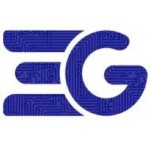Introduction
NodeMCU has become a popular choice for enthusiasts and professionals in the rapidly growing Internet of Things (IoT) field. This versatile, cost-effective microcontroller platform is perfect for various projects, from smart home systems to wearable devices. This blog explores NodeMCU's key features, benefits, and how to get started.
What is NodeMCU?
NodeMCU is an open-source platform based on the ESP8266 Wi-Fi module. It includes both hardware (a development board) and firmware, making it a comprehensive solution for IoT applications. The board is equipped with a USB-to-serial converter, a voltage regulator, and pin headers, facilitating easy prototyping and connectivity.
Key Features of NodeMCU
- Wi-Fi Connectivity: NodeMCU's built-in Wi-Fi capabilities are crucial for IoT applications, enabling devices to connect seamlessly to the internet.
- Open-Source Platform: The open-source nature of NodeMCU encourages community collaboration and access to extensive resources.
- Lua Scripting Language: NodeMCU firmware uses Lua, a simple yet powerful scripting language that makes programming accessible to beginners.
- GPIO Pins: NodeMCU has multiple General Purpose Input/Output (GPIO) pins for interfacing with sensors, actuators, and other components.
- USB-to-Serial Converter: This feature simplifies programming and debugging by allowing easy connection to a computer.
- Low Power Consumption: NodeMCU is designed to be energy-efficient, making it suitable for battery-powered projects.
Benefits of Using NodeMCU
- Ease of Use: NodeMCU is user-friendly, with extensive documentation and a supportive community, making it ideal for beginners.
- Cost-Effective: The low cost of NodeMCU makes it accessible to a wide range of users, allowing for experimentation without significant financial investment.
- Versatility: With its flexible GPIO pins and Wi-Fi connectivity, NodeMCU can be used in diverse IoT projects, from home automation to environmental monitoring.
- Strong Community Support: The active NodeMCU community provides valuable resources, troubleshooting help, and project ideas.
- Rapid Prototyping: NodeMCU's breadboard compatibility and straightforward programming environment facilitate quick and efficient prototyping.
- IoT-Ready: Designed with IoT applications in mind, NodeMCU supports various protocols and integrates seamlessly with cloud services and other platforms.
Popular Projects Using NodeMCU
- Smart Home Automation: Control lights, temperature, and security systems using NodeMCU, enhancing home convenience and efficiency.
- Weather Stations: Collect and process environmental data in real-time with NodeMCU-based weather stations.
- IoT Security Systems: Build security systems with motion detectors, cameras, and sensors, all managed by NodeMCU.
- Remote Monitoring and Control: Monitor and control systems like irrigation setups from anywhere via NodeMCU and a web interface.
- Wearable Devices: Create fitness trackers and health monitors using NodeMCU's compact size and low power consumption.
Getting Started with NodeMCU
- Gather Components: Ensure you have a NodeMCU board, USB cable, breadboard, jumper wires, and necessary sensors or actuators.
- Install the Arduino IDE: Download the Arduino IDE, which supports ESP8266, and install it on your computer.
- Set Up the IDE: Add the ESP8266 board package to the Arduino IDE by entering the appropriate URL in the preferences.
- Connect NodeMCU: Attach NodeMCU to your computer via USB and select the correct board and port in the Arduino IDE.
- Upload Your First Sketch: Start with a simple blink sketch to test your setup, then explore more complex projects.
- Explore Resources: Utilize online tutorials, forums, and documentation to expand your knowledge and tackle advanced projects.
Conclusion
NodeMCU is a powerful, versatile, and affordable platform for building IoT projects. Its ease of use, robust community support, and extensive features make it an excellent choice for anyone interested in IoT and electronics. Whether you're a beginner or an experienced developer, NodeMCU provides the tools and flexibility needed to bring your ideas to life. Start exploring the exciting world of NodeMCU today and create your next innovative project!





Comments